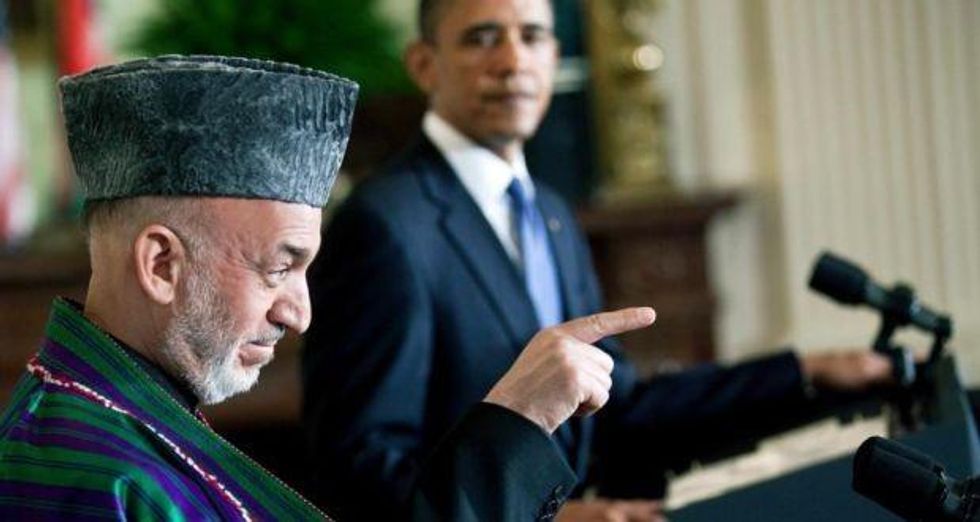Despite repeated statements from the Obama administration that its preferred planned is for a large residual military force and operations footprint inside Afghanistan that extends well beyond 2014, the president formally ordered the Pentagon on Tuesday to draw up plans for a full and complete withdrawal of all U.S. forces by the end of the year--the so-called 'zero option.'
Though treated like a threat and something that would be terrible for both U.S. interests and the Afghan people by many in the Washington establishment, the reality is that preparations for a coordinated and full withdrawal is exactly what the global anti-war movement and those who support Afghan sovereignty have been calling for since the country was first invaded by the U.S. and NATO more than a dozen years ago.
Obama's move was leaked to the press following a phone call between Obama and Afghan President Hamid Karzai earlier on Tuesday in which the two leaders discussed the ongoing reluctance of Karzai to sign a bilateral security agreement (BSA) put forth by the White House.
Karzai has repeatedly rebuffed pressure from the US and NATO to sign the BSA, saying he wants to wait until after upcoming presidential elections in the country before committing to additional years of having foreign troops in the country, maintaining bases, and launching military operations within and across its borders.
As the Guardianreports:
Preparations for a withdrawal from Afghanistan are complicated by the fact that the use of air bases there are not solely focused on waging war. Bases like Kandahar in the south and Jalalabad in the east are also platforms for flying surveillance and armed drones into neighboring Pakistan, and surveillance drones have also likely flown from Kandahar into Iran.
Losing access to Afghan air bases may likely prompt the US to look for alternative regional launchpads in central Asian states, an uncertain prospect complicated by their dismal human rights records. In 2005, Uzbekistan revoked US access to its Karshi-Khanabad air base following a diplomatic row over a bloody crackdown that May in Andijan province.
The Pentagon did not comment on any airbase negotiations, but a spokeswoman, Navy commander Elissa Smith, said "regardless of the outcome of the BSA, the United States will take the steps necessary to combat terrorism and protect our interests".
According to foreign policy analyst Phyllis Bennis, a senior fellow at the Institute for Policy Studies in Washington, the focus on U.S. interests in repeated statements by Pentagon officials and Obama himself reveals how shallow the rhetoric has been when the U.S. tries to say that the continued presence of U.S. troops is for the good of the Afghan people.
While rejecting Obama's argument that keeping troops in Afghanistan will somehow keep Americans more safe from future terrorist attacks, Bennis supports the idea of a full and complete U.S. withdrawal. As she wrote recently:
The best way to prevent attacks on the U.S. is precisely to get all U.S. troops -- all, not most -- out of Afghanistan. The "Zero Option," the full withdrawal the United States dreads and the inevitable result if the Afghan government, like its Iraqi counterpart, refuses to grant immunity to U.S. troops for any crimes they might commit, is in fact the best way to both help Afghanistan's people reclaim their country on their own terms, and reduce the threat of attacks on the United States.
________________________________________________

